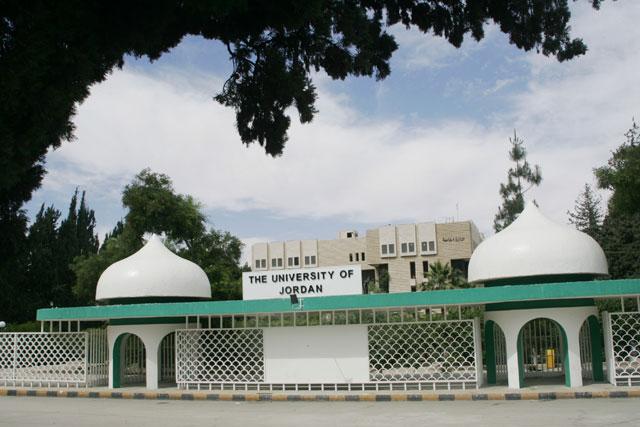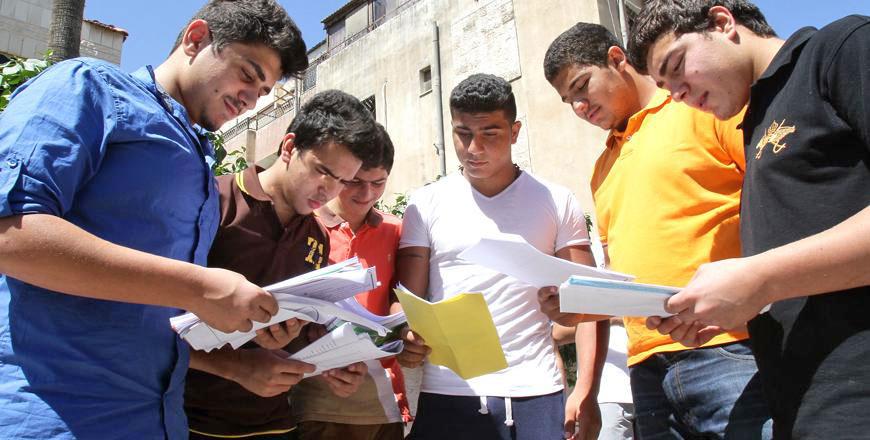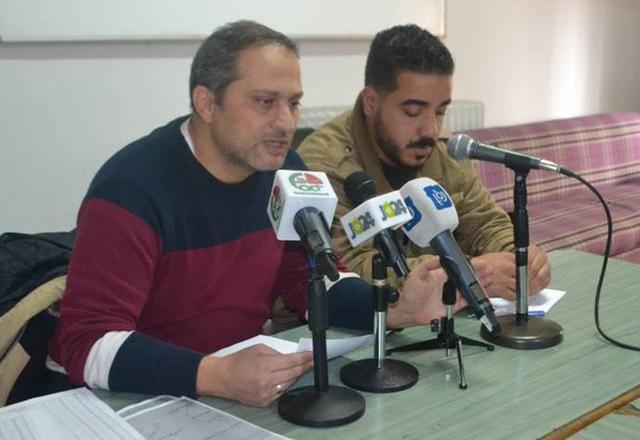You are here
Higher Education Ministry proposes cancelling parallel programme over 7-10 years
By JT - Mar 06,2017 - Last updated at Mar 06,2017

Through the parallel programme, students with high school scores that are too low to qualify them to study specific subjects at public universities can instead enrol in these disciplines by paying higher tuition fees (File photo)
AMMAN — Higher Education Minister Adel Tweisi on Monday presented a proposal that entails cancelling the parallel programme at universities and increasing tuition fees gradually over several years, the Jordan News Agency, Petra, reported.
The increase could either be through cancelling the parallel plan over 10 years and increasing tuition fees by 5 per cent each year or over seven years with a 7 per cent increase each year, with the government making up for the gap in university revenues in both scenarios.
This alternative, a combination of two other options listed in the National Strategy for Human Resources Development 2016-2025, was presented by Tweisi to the Lower House Education Committee and presidents of the boards of trustees of Jordanian universities during two separate meetings.
Through the parallel programme, students with General Secondary Education Certificate Examination scores that are too low to qualify them to study specific subjects at public universities can instead enrol in these disciplines by paying higher tuition fees.
The programme helps universities generate revenues.
The first option suggested by the strategy requires the government to cover the shortage in university revenues that comes about from the programme’s cancellation. But Tweisi said this is not possible with the current economic conditions, as the amount could reach JD136 million each year.
The second option calls for increasing tuition fees, which Tweisi said is neither realistic nor practical, as the increase for some majors could reach 190 per cent of the current fees on the regular programme.
Thus, the third option presented by the Higher Education Ministry combined both options.
Discussions at the two meetings examined the proposal, with the Higher Education Ministry inviting the House committee and the presidents of the boards of trustees to send their comments and suggestions.
The House committee members stressed the importance of studying the recommendations of MPs to reach a decision that the government and Parliament agree on.
Related Articles
AMMAN — A decision to halt parallel programmes at public universities has been postponed till 2020 due to the lack of alternative means of s
AMMAN — The National Campaign for Defending Students’ Rights (Thabahtoona) on Monday called for the revision of educational policies concern
AMMAN — The National Campaign for Defending Students’ Rights “Thabahtoona” on Monday said the rise in tuition fees for diploma programmes (c













